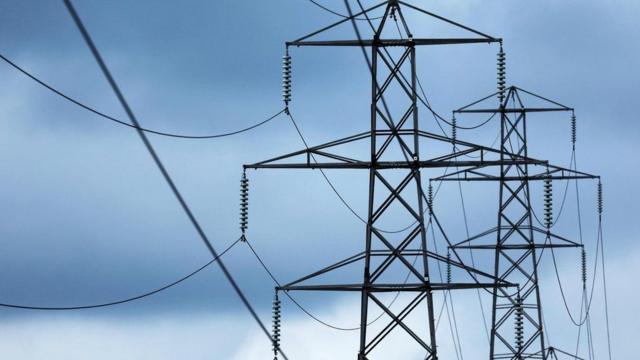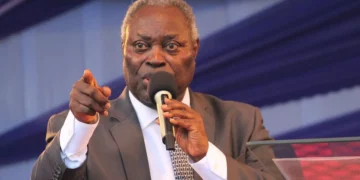When the Minister of Power, Adebayo Adelabu, said during the week that Nigeria cannot afford to continue subsidizing electricity, I thought maybe it was a comedy skit because the minister cannot be serious.
This was coming just hours after the International Monetary Fund (IMF) said that there is an urgent need for Nigeria to completely phase out costly fuel and electricity subsidies as part of measures to address its economic challenges.
This is certainly the case of the old woman who cried last night, and the baby died in the morning.
The way things are going, it’s like the IMF is the alternative government in Nigeria.
Nigerians are yet to come to terms with the removal of subsidy, and now you want to remove electricity subsidy. Maybe until there is a massive protest across the country before the minister gets the memo.
The minister reasons that the country is currently indebted to the tune of N1.3tn to electricity generating companies, while the debt to gas companies is $1.3bn, which is not tenable to Nigerians.
We have heard it several times that Nigeria is more of a gas nation than a petroleum nation. So what is happening to all our gas resources in the country?
Suffice it to say, the privatization of the power sector has failed woefully. Every successive government has promised to improve our power generation, but it has all been a case of all motion and no movement. We have not been able to generate more than 500mw for a country of over 200 million. This is shameful.
The target is to improve our power generation, not remove subsidy.
No doubt, the removal of fuel subsidy and the floating of the naira are the major reasons for the astronomical rise in the price of goods and services. It is what is causing the protests in some parts of the country. It’s asinine to think the protest was sponsored. Hunger has no sponsor.
I have heard reports of people stealing pots of soups and the rest. It’s a ticking time bomb.
When Nigerians are struggling to breathe and have no hope of succor anywhere, to even contemplate removing electricity subsidy now is inhumane and sinful.
Many small and medium businesses will have no choice but to shut down.
Come to think of it, why is the IMF against any subsidy in Nigeria? Why are they making it look as if subsidies are illegal? The last time I checked, the U.S. government heavily subsidizes the domestic agricultural sector. It also subsidizes oil and energy producers, some housing, automakers, and some healthcare (e.g., Medicare).
I read a report last year that says Britain’s government paid almost 40 billion pounds ($50 billion) in energy subsidies since it began to help households and businesses cope with the surge in power bills after Russia’s invasion of Ukraine.
So why is the IMF hell-bent on making the Nigerian government remove all subsidies for its citizens?
In a developing country like ours, subsidy is mandatory. I think President Bola Tinubu should ignore IMF advice on electricity subsidy for now. His hands are still full coping with the removal of fuel subsidy, and the administration has been running from pillar to post trying to solve the problems that came with the removal.
We have seen protests here and there, and it is about to get worse if things are not done fast.
I also do not believe that price control will work in Nigeria. Shutting down malls is also taking tomfoolery too far. The mall owners are businessmen who are struggling to survive in this harshest of business climates.
The government should perish the thought of removing electricity subsidy for now. No matter the reasons given, the government should have a human face. When the economy stabilizes from the effect of the fuel subsidy removal and floating of the naira, then they can contemplate removing electricity subsidy. Trying to effect hard economic decisions at the same time will only lead to anarchy and resentment. Like what Simon Kolawole wrote in his column last week, it should not be the case of the surgery was successful but we lost the patient.










